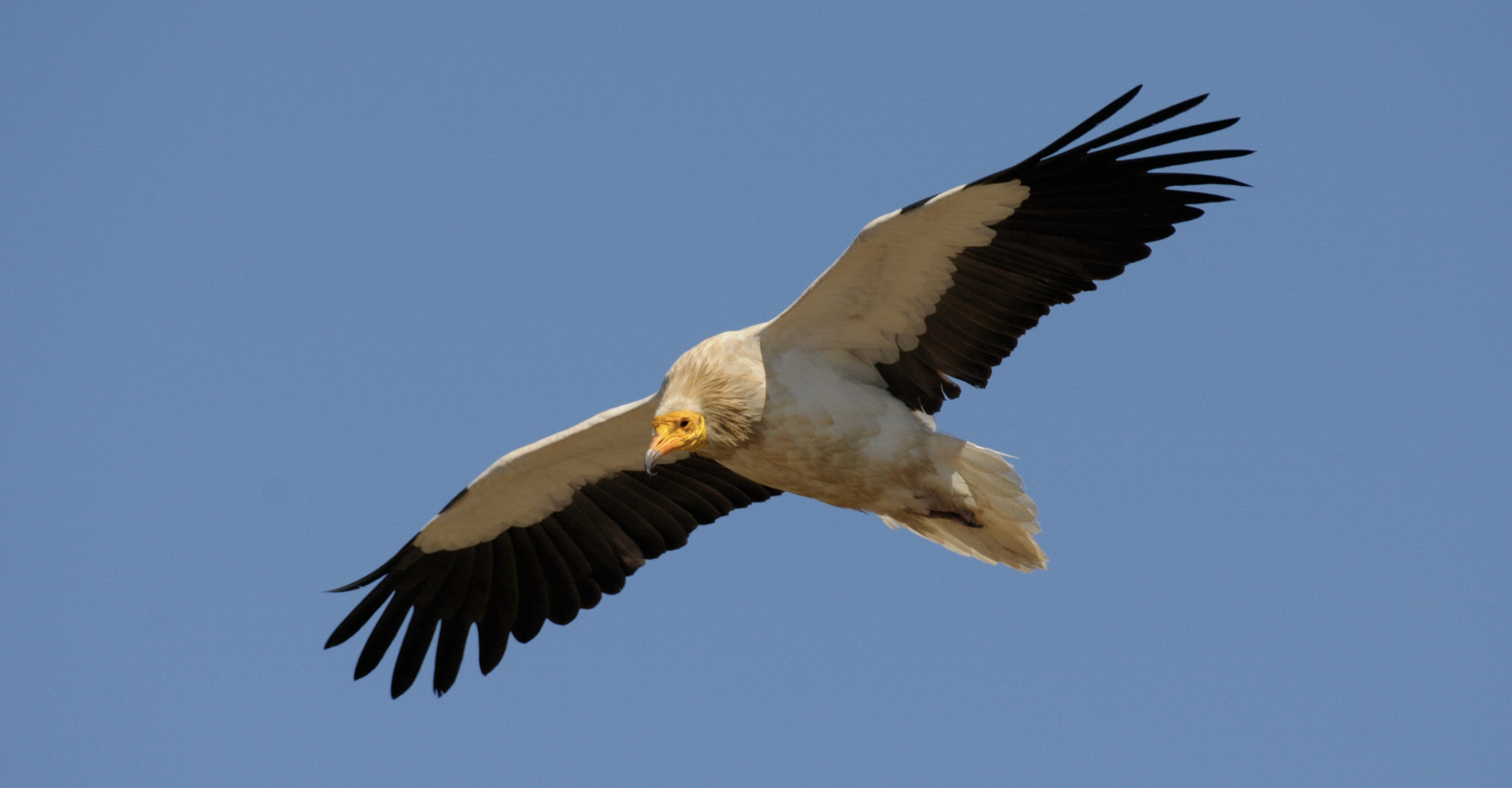
Second attempt to foster a captive-bred Egyptian vulture chick as part of the Egyptian Vulture New LIFE project is a success.
Release Egyptian vultures into the wild
As part of the Egyptian Vulture New LIFE project, we at the Vulture Conservation Foundation are supporting and contributing to a comprehensive experiment that aims to test the different techniques of releasing captive-bred Egyptian vultures. This project will measure relative survival of birds released under three different technique to help the team understand the best technique for eventually restocking the small population of 40 pairs left on the Balkan peninsula.
The first of those, the delayed release technique, involves placing young chicks from one breeding season in an acclimitastion aviary at a release site and delaying their release into the wild until the following year. So far this technique has seen the now one year old birds travel and explore the Rhopdopes mountains in preparation for their migration in the coming month.

The traditional hacking technique involves placing chicks in an artificial enclosed surrogate nest where they will be fed (without any human contact) and looked after from a monitoring point in the distance until they fledge. The team are attempting the hacking technique on Friday 10 August and we’ll share the results over the next couple of weeks.
The final technique is fostering of chicks in wild nests.
Fostering chicks in wild nests
We reported the disappointing results from the unsuccessful first attempt of fostering a captive-bred chick in a wild nest back in July. The young chick exhibited unusally agressive behaviour towards the wild nestling, which resulted in the captive-bred chick being removed from the nest and transferred to be fostered by a captive breeding pair in the Green Balkans Wildlife Rescue Centre. Under the supervision of Green Balkans staff the pair successfully took care of the chick for two months.

The agressive behaviour was due in large part to the young age of the chick and the length of time in transit from Prague to Bulgaria. The team investigated one fostering attempt in Italy which was successful – the reason behind the success there may be related to the older age of the chick, around 60 days. With the fostered chick now approaching 60 days the team decided to reattempt fostering the young bird in a wild nest.
Second attempt
Almost fully fledged the young vulture was fitted with a GPS transmitter, to help the conservation team monitor its movements when it eventuall fledges, and returned to the original wild nest where the first fostering was attempted.
And it was a success, to much relief from the Bulgarian Society for the Protection of Birds and Green Balkans team. When placed in the nest the chick was quickly welcomed by the wild pair of birds feeding the young birds alongside their own chick. The nest will be closely monitored and supplementary feeding will be used to help support the adult pair until the two chicks have fledged and left the nesting area.
The next challenges for the fostered bird will be to leave the nest successfully, to adapt to life without the care of the foster parents and the most perilous test – the first migration to the wintering grounds.
The Egyptian Vulture New LIFE
The Egyptian Vulture New LIFE aims to reinforce the Egyptian vulture population in their Europe’s easternmost range across the Balkans. By actively managing and restocking the population by releasing captive-bred birds the project will support the small Balkan population which number between 60 and 80 pairs across the whole region. The project is working to deliver conservation measures that eliminate major known threats such as illegal poisoning and electrocution in their summer breeding grounds. Monitoring the population closely using GPS transmitters will also help the project tackle the major threats Egyptian vultures face. The Egyptian Vulture New LIFE is a partnership of organisations, led by the Bulgarian Society for the Protection of Birds and Bulgarian conservation organisation Green Balkans,from 14 countries spanning Europe, the Middle East and Africa, to protect Egyptian vultures not only in Europe but all along their migratory flyway.






